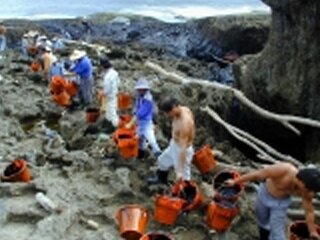Recent activities of ITOPF, the AMORGOS incident and considerations of NEBA (2002)
22 May 2014

Paper presented at: Petroleum Association of Japan (PAJ) Oil Spill Symposium 2002, 6-7 March, Tokyo
Learning from previous oil spill experiences is very important if predictions are to be made about the possible outcomes of following a particular response strategy in the aftermath of a new incident. Fortunately, major incidents, like the 'ERIKA' do not occur often. Nevertheless, regular occurrences of smaller oil spills worldwide ensure that a great deal of information and knowledge continues to accumulate.
Net Environmental Benefit Analysis (NEBA) has been seen by some as a means of 'calculating' the benefits obtained by choosing one response option over another. Consequently, the basic principle of NEBA is in danger of becoming theoretical and unnecessarily complicated. In simple terms, NEBA is a means of utilising the experience gained from previous oil spills to make sensible decisions regarding the response whilst taking into account the importance of social, economic and environmental factors.
In this paper the incidents attended by ITOPF since the beginning of last year are briefly reviewed. The incidents are categorised according to their cause, type of ship, oil spilt, and location so as to highlight the interesting points. The lessons learned following the 'AMORGOS' incident in Taiwan are used to illustrate the practical application of NEBA during spill response.
Categories: Spill Response, Papers
